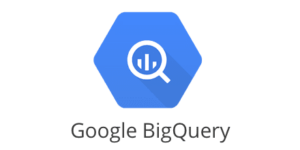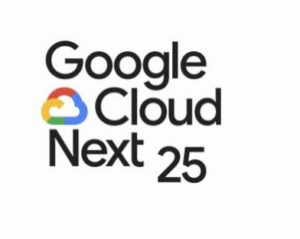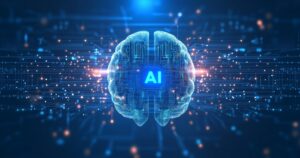

(Michael Vi/Shutterstock)
Google Cloud made a slew of analytics-related announcements at its Next 2025 conference this week, including a range of enhancements to BigQuery, its flagship database for analytics. BigDATAwire caught up with Yasmeen Ahmad, managing director of data analytics, to get the scoop.
Asked to identify three main areas of innovation in BigQuery and related products, Ahmad pointed to the new agents that automated data science, engineering, and analytics work; the new data processing engines in BigQuery; and advances in Google Cloud’s data foundation and its data fabric.
While the work is done by separate teams, there is a lot of functionality that crosses over into other areas, Ahmad added. “We have a lot of talented engineering teams all working on amazing things in parallel,” she said. “We just had so many amazing innovations over the past 12 months we’ve been working on culminating to Next.”
New AI Agents
As we previously reported, Google Cloud is devoting significantly resources to helping its customers build and manage AI agents. That works includes building a new Agent Development Kit (ADK), creating a new Agent-to-Agent (A2A) communication protocol that completes Anthropic’s Model Context Protocol (MCP), and the creation of an Agent Garden, among (many) other innovations.
The company is also embedding pre-built AI agents into its own software services, including BigQuery. There are new specialized agents for data engineering and data science tasks; new agents for building data pipelines; and new agents for performing data prep tasks, such as data transformation, data enrichment, and anomaly detection.
“That’s a game changer for the human data people who are working on data,” Ahmad said. “We really believe those agents are going to transform the way they work with data.”
The agents are powered by Gemini, Google’s flagship foundation model. The agents are making suggestions to the human data analysts, data scientists, and data engineers based in part on information collected through a new BigQuery knowledge engine that Google Cloud has built, which is currently in preview.
“The knowledge engine uses metadata, semantics, usage logs, and information from the catalog to understand business context, to understand how data items are related,” Ahmad said. “How are people using the data? How are different engines being used over that data? And the knowledge that it builds from that is what it then feeds these data agents.”
Google Cloud also unveiled a new conversational analytics agent functionality in Looker, its BI and analytics. This new agent will allow Looker users to interact with data using natural language. The new AI-powered natural language functions in Looker will also improve the accuracy of Looker’s modeling language, LookML, which functions as Google’s semantic layer, by up to two-thirds, the company says.
“As users reference business terms like ‘revenue’ or ‘segments,’ the agent knows exactly what you mean and can calculate metrics in real-time, ensuring it delivers accurate, relevant, and trusted results,” Ahmad wrote in a blog post.
New BigQuery Engines
In addition to the new knowledge engine, Google Cloud announced that it’s developing a new AI query engine for BigQuery. The BigQuery AI query engine will enable queries to foundation models like Gemini to occur simultaneously with traditional SQL queries to the data warehouse.
Querying structured and unstructured at the same time will open a host of new analytic and data science use cases, Google Cloud says, including building richer features for models, performing nuanced segmentation, and uncovering hard-to-reach insights.
“A data scientist can now ask questions like: ‘Which products in our inventory are primarily manufactured in countries with emerging economies?’ The foundation model inherently knows which countries are considered emerging economies,” Ahmad wrote.
BigQuery notebook, a data science notebook alternative to Jupyter, has also been enhanced with AI. Google Cloud is introducing “intelligent SQL cells” that understand the context of customers’ data and offer the data scientist suggestions as they write code. It’s also leveraging AI to enable new exploratory analysis and visualization capabilities.
Google Cloud has also introduced a new serverless Apache Spark engine in BigQuery. Google Cloud has supported traditional Spark environments for years as part of Dataproc, which also includes Hadoop, Flink, Presto, and many other engines. Currently in preview and being tested by customers, the serverless Spark offering is getting better, Ahmad said.
“We announced this week we’ve made three-fold performance improvement in our serverless Spark offering,” she said. “So we’re really looking forward to getting this now into general availability, because we believe that performance is going to be market-leading performance.”
And while it’s not a BigQuery announcement, Google Cloud also announced the general availability of Google Cloud for Apache Kafka. While the company also offers its PubSub service for streaming data, some customers just want Kafka, Ahmad said.
“We have many users using Google’s first party services, but again, we want that choice and optionality depending on where our customer is also coming from,” she said. “As we also embrace all of those customers migrating to Google, we want to embrace what they’ve already built with existing investments and built pipelines and so on.”
Data Foundation Enhancements
Like the first two areas, the third big area of improvement in the Google Cloud analytics environment–enhancements to the data foundation (the data fabric) and data governance–touches on other areas too.
For instance, just as the AI query engine in BigQuery lets users use Gemini against their data, they can also now manage unstructured data in BigQuery through the new support for multimodal tables (structured and unstructured data).
Google Cloud is rolling out a preview of a new feature called BigQuery governance that will provide a single, unified view for data stewards and professionals to handle discovery, classification, curation, quality, usage, and sharing. It includes automated data cataloging (GA) as well as new experimental feature, automatic metadata generation.
“We have a bigger vision around governance,” Ahmad said in the interview. “A lot of the work around catalogs, metadata, semantics, etc. has been very human and manual driven historically. You’ve got to go set up a catalog. You’ve got to go set up metadata, business glossaries–all of those things.”
Google Cloud is making a big bet that AI can help to automate much of that data governance work in its data fabric. “We showcased demos of automated semantic generation at scale, cataloging over objective or over unstructured data,” Ahmad said. “So we actually see this thing as an intelligent, living, breathing thing that is dynamic and actually powering the whole AI ecosystem around agents and any kind of agentic capability.”
As if that wasn’t enough, Google Cloud is also moving forward with its data lakehouse architecture. The company announced a preview of BigQuery tables for Apache Iceberg, which will give customers the benefits of the open table format, such as enabling a range of query engines to access the same table without fear of conflicts or data contamination.
Since Google Cloud first brought Iceberg into its environment six months ago, adoption has tripled, Ahmad said. In fact, she added, Google Cloud’s support for Iceberg is market-leading in terms of performance and capabilities.
For instance, customers can rely on Google to govern their Iceberg tables, she said. They can stream data straight into Iceberg, or extract AI-powered insights from Iceberg data. Google can back up customers’ Ice berg environments,
“In fact, many customers, when they’ve actually looked at our Iceberg managed service, they’re saying, ‘Hey you’re not just supporting it. You’re accelerating Iceberg in a way that that is just a dream come true,” Ahmad said. “So actually Deutsche Telekom on the panel I did yesterday with them said Iceberg has been magical for us in Google Cloud because we truly are embracing it, because we think it’s so important for customers for that choice and flexibility they’re looking for.”
Related Items:
Google Cloud Preps for Agentic AI Era with ‘Ironwood’ TPU, New Models and Software
Google Cloud Fleshes Out its Databases at Next 2025, with an Eye to AI
Google Revs Cloud Databases, Adds More GenAI to the Mix
April 11, 2025
- MIT: New Method Efficiently Safeguards Sensitive AI Training Data
- Vast.ai Achieves SOC 2 Type I Certification for Data Security and Integrity
- Google Cloud Targets Scientific Innovation with H4D VMs and AI-Powered Research Tools
- AWS and CodeSignal Equip 20,000 Students with Job-Ready Tech Skills
- NTT Announces AI Inference Chip for Real-Time 4K Video Processing
- Elastic Delivers Performance Gains for Users Running Elasticsearch on Google Axion Processors
April 10, 2025
- Fivetran Introduces Managed Data Lake Service for Google’s Cloud Storage
- NTT Research Launches New Physics of Artificial Intelligence Group
- COMPUTEX 2025 Keynotes to Highlight AI, Accelerated Computing, and Edge Innovation
- NVIDIA Brings Agentic AI Reasoning to Enterprises with Google Cloud
- Snowflake Achieves IL5 Authorization for DOD Workloads on AWS GovCloud
- dbt Labs Expands Cloud Availability with Google Cloud Deployment and Marketplace Launch
- Google Cloud Unveils Ironwood TPU for Large-Scale AI Inference
- Elasticsearch Now Available as a Native Grounding Engine on Google Cloud’s Vertex AI Platform
April 9, 2025
- Ai2 Launches OLMoTrace to Reveal How LLM Responses Connect to Training Data
- Elastic Announces General Availability of LLM Observability for Google Cloud’s Vertex AI
- Informatica Adds Native Databricks and Enhanced Governance to IDMC on Google Cloud
- PuppyGraph Achieves Google Cloud Ready Designations for BigQuery and AlloyDB
- Yellowbrick Powers Data Modernization Across Key Sectors for Faster Decision-Making
- AMD Powers New Google Cloud C4D and H4D VMs with 5th Gen EPYC CPUs
- PayPal Feeds the DL Beast with Huge Vault of Fraud Data
- OpenTelemetry Is Too Complicated, VictoriaMetrics Says
- Will Model Context Protocol (MCP) Become the Standard for Agentic AI?
- Accelerating Agentic AI Productivity with Enterprise Frameworks
- Thriving in the Second Wave of Big Data Modernization
- When Will Large Vision Models Have Their ChatGPT Moment?
- What Benchmarks Say About Agentic AI’s Coding Potential
- Nvidia Touts Next Generation GPU Superchip and New Photonic Switches
- Four Obstacles to Enterprise-Scale Generative AI
- Can We Learn to Live with AI Hallucinations?
- More Features…
- Clickhouse Acquires HyperDX To Advance Open-Source Observability
- NVIDIA GTC 2025: What to Expect From the Ultimate AI Event?
- Grafana’s Annual Report Uncovers Key Insights into the Future of Observability
- Reporter’s Notebook: AI Hype and Glory at Nvidia GTC 2025
- HPE Preps for the AI Era with Updated Data Fabric, Storage, and Compute Offerings
- Mathematica Helps Crack Zodiac Killer’s Code
- Confluent GAs Tableflow, Adds Flink Native Inference in Bengalaru
- New Intel CEO Lip-Bu Tan Promises Return to Engineering Innovation in Major Address
- Google Cloud Cranks Up the Analytics at Next 2025
- Datadog DASH 2024 Insights: New Features for Observability, Security, and Performance
- More News In Brief…
- Gartner Predicts 40% of Generative AI Solutions Will Be Multimodal By 2027
- Snowflake Ventures Invests in Anomalo for Advanced Data Quality Monitoring in the AI Data Cloud
- Seagate Unveils IronWolf Pro 24TB Hard Drive for SMBs and Enterprises
- NVIDIA Unveils AI Data Platform for Accelerated AI Query Workloads in Enterprise Storage
- MinIO: Introducing Model Context Protocol Server for MinIO AIStor
- Dataiku Achieves AWS Generative AI Competency
- AMD Powers New Google Cloud C4D and H4D VMs with 5th Gen EPYC CPUs
- CData Launches Microsoft Fabric Integration Accelerator
- MLCommons Releases New MLPerf Inference v5.0 Benchmark Results
- Opsera Raises $20M to Expand AI-Driven DevOps Platform
- More This Just In…




























